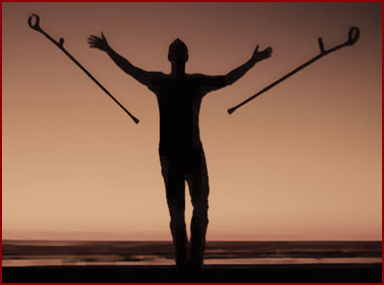Our Inner Director
Although we often think we are at the mercy of the machinations of existence and that they are uncontrollable, we indeed have control over our own inner world, if we truly decide to do so. We have control over our own inner state of mind. We have control over our development, which consists of letting go of everything that limits and blocks us from dealing with external circumstances in freedom. There is an inner director within us. This director can free our mental and emotional world from everything that limits our human growth; and therefore free us from what fundamentally makes us unhappy.
I used to work in musical theater. There is always a director present to ensure that the production remains free of blockages and issues, and who oversees the overall cohesion of all production aspects to create a beautifully inspiring and clear world. For the audience, for the actors so they can thrive, and for everyone involved with the production. The director connects everything!
A well-known principle among directors is that they are sometimes forced to remove things from the piece, even if they are beautiful or tempting to keep. They do this to optimize the expressiveness of the entire production. This is called: kill your darlings.
I experienced this myself when, halfway through a series of performances, a beautiful piece of my music was removed from the play because it improved the storyline. I understood the reason, but of course, it wasn’t pleasant.
Kill your darlings
 Our inner director must also make such decisions. We have become attached to so many things out of taste, love, and passion, which keep us away from true inner freedom. Beautiful things, but sometimes less beautiful, even though we may not see or acknowledge that. This inner director will first have to discover these darlings, and then assess their value for our overall storyline. Does such a darling nourish us in our life expression, or does it hinder us with an attractive familiarity? Does it genuinely serve our essence, or is it in fact a strategy to make us feel good, masking something that we have not yet noticed and remains unresolved? Appealing habits can then stand in the way of real inner freedom. Precisely because they feel ‘right’ and we regard them as ‘mine’ and ‘okay’, it is difficult to reevaluate them as ‘not quite convenient’. Then, the act of ‘killing’ them can even be painful. Nevertheless, by simply and repeatedly giving them up, these darlings will lose their strength and beauty. Beyond that, an entirely different strength and beauty emerges.
Our inner director must also make such decisions. We have become attached to so many things out of taste, love, and passion, which keep us away from true inner freedom. Beautiful things, but sometimes less beautiful, even though we may not see or acknowledge that. This inner director will first have to discover these darlings, and then assess their value for our overall storyline. Does such a darling nourish us in our life expression, or does it hinder us with an attractive familiarity? Does it genuinely serve our essence, or is it in fact a strategy to make us feel good, masking something that we have not yet noticed and remains unresolved? Appealing habits can then stand in the way of real inner freedom. Precisely because they feel ‘right’ and we regard them as ‘mine’ and ‘okay’, it is difficult to reevaluate them as ‘not quite convenient’. Then, the act of ‘killing’ them can even be painful. Nevertheless, by simply and repeatedly giving them up, these darlings will lose their strength and beauty. Beyond that, an entirely different strength and beauty emerges.
Self-knowledge is a process, not an endpoint. We will encounter these darlings throughout this process. It’s inevitable! Many of them have been with us for a long time, familiar but unnoticed, and we will not want to let go of them right away as soon as we observe and recognize them. We will tend to initially justify these darlings before, as directors, we see that they indeed need to be ‘killed’ for the quality of our entire existence. Our attachment to them does not equate to the benefits they offer. Often, these darlings are hidden pitfalls and traps, much like physical addictions such as drinking or smoking. Yet we love these darlings, the identifications and habits that give us security, suppress our fears, make us feel good, and somehow make our lives more bearable. But they remain substitutes, those so-called satisfying darlings that we cherish. They remain obstacles on the path to true inner freedom. We thus love something that restricts our true inner state.
Find and kill your darlings! Give them up. And do it in love for wisdom: in love for your true self.
According to Machig Labdrön (a highly revered female Tibetan Buddhist monk from the 11th century), our primary goal is to ‘cut through’ our attachment to our constantly identifying ego:
“What we call demons are not materially existing creatures that petrify everyone. A demon is anything that obstructs our inner liberation. There is no greater demon than fixation on oneself. Even friendly and loving friends and companions can become demons when it comes to liberation. There is no greater demon than clinging to one’s own ego, and so all sorts of demons will raise their ugly heads as long as one has not cut through the attachment to the ego. Therefore, you must exert yourself with a skillful method to break through the demon of ego-fixation.”
In this context, demons and darlings are thus the same.

